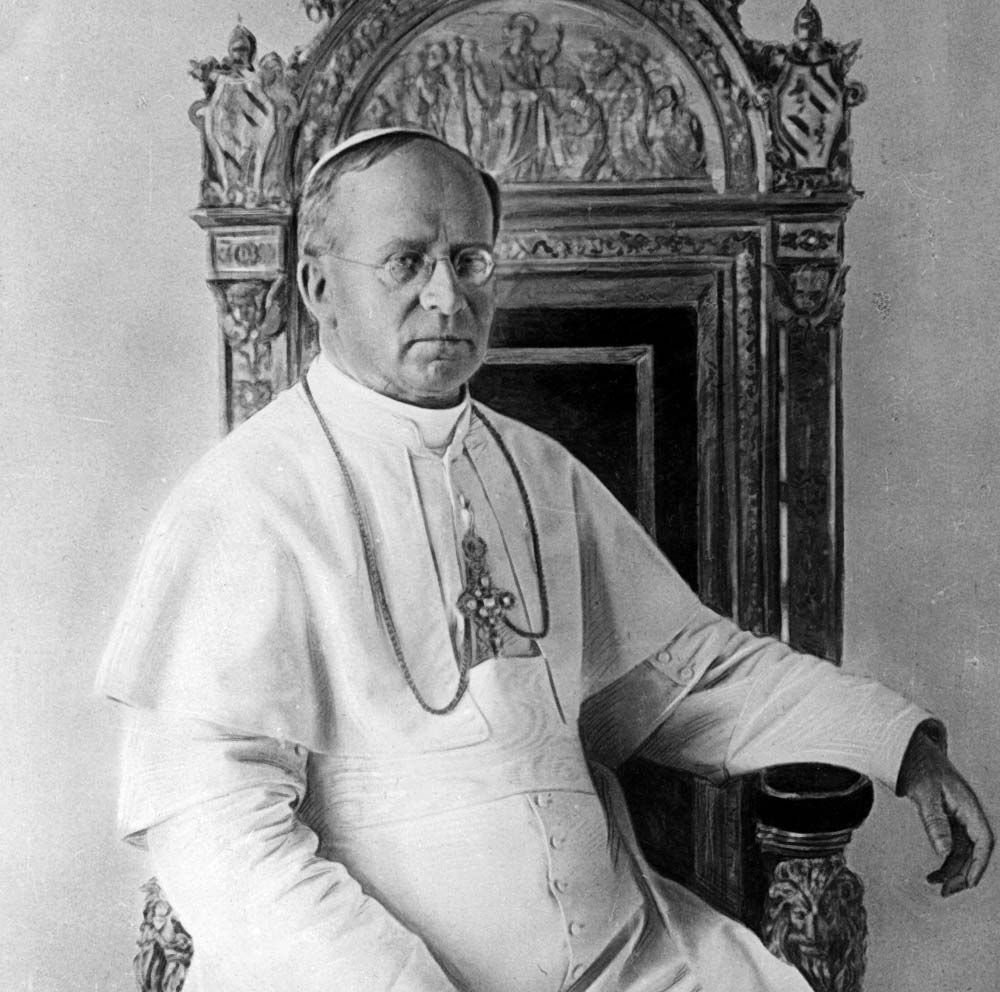 |
| Is this the path to social justice? |
Liberals always talk about taxing the rich, but end up robbing the pockets of the middle class to achieve their goals. As my dad used to say, "There just aren't enough rich people!" The real target must be the massive middle. And, of course, capitalism in their book, by nature, is evil, which it certainly can be when it exploits workers making them wage slaves. But socialism does exactly the same thing by its nature! The worker is nothing but a mere creature of the state, a cog in the government machine.
But what is social justice...really?
The Catholic Register offers an answer in an article posted yesterday titled, What is Social Justice. I'd say it's an interesting introduction to the question, heavily dependent on the encyclical by Pope Pius XI, Quadragesimo Anno (1931) which was written 40 years after Pope Leo XIII's Rerum Novarum, On the condition of the working classes and emphasized Leo's concerns.
If you are as confused as I am about what the Church means by the term social justice which is so misused by liberal bishops, religious, and laity, this looks like a good starting point. It's already leading me to other places.
So what is social justice?
 |
| Pope Leo XIII |
The virtue that inclines one to co-operate with others in order to help make the institutions of society better serve the common good. While the obligation of social justice falls upon the individual, that person cannot fulfill the obligation alone, but must work in concert with others, through organized bodies, as a member of a group whose purpose is to identify the needs of society, and, by the use of appropriate means, to meet these needs locally, regionally, nationally, and even globally. Implicit in the virtue of social justice is an awareness that the world has entered on a new phase of social existence, with potential for great good or great harm vested in those who control the media and the structures of modern society. Christians, therefore, are expected to respond to the new obligations created by the extraordinary means of promoting the common good not only of small groups but literally of all humanity.Hmm...does that clear it up for you? I'll be honest, it doesn't for me.
Common sense and my own eyes tell me that social justice does NOT mean equality of ownership or individual talents. That is clearly unbiblical, not to mention impossible. Jesus told us the poor will always be with us, and was himself poor. Poverty is not in and of itself evil (vs. destitution). And the parable of the talents clearly acknowledges the inequality of both ability and outcome. So trying to make all of us "equal" materially and mentally cannot be the meaning of social justice.
 |
| Pope Pius XI |
So I feel like I'm back at the beginning, but I will continue to reflect and invite you to reflect with me.
Justice involves giving all people their due. As a life-long pro-life activist, I see the "common good" beginning with defending the right to life of all including the tiny little one in the womb waiting to be born. All other "rights" are meaningless before that first right, our birthright, is respected!
Our Lady of Life, pray for us!

You wrote, "If everyone embraced the will of God, social justice would take care of itself."
ReplyDeleteThat is extraordinarily profound.
I understand why the encyclicals about labor were written, but I honestly believe they were a case of Brer Rabbit socking the Tar Baby. They did no good and entangled the Church thereafter in trying to be part of a civil solution it has no business in to begin with.
I have just cracked open a new book titled, The Demon in Democracy, Totalitarian Temptations in Free Societies, by Ryszard Legutko. The author is a Polish professor of philosophy in Krakow. The theme of his book is the great similarity between liberal democrats and communism.
I haven't even finished his introduction yet and I already recommend the book to others.
In entering the fray and trying to invent a new solution, instead of quoting scripture (as Christ did when he was tempted by Satan) the Church is now fighting a battle on enemy ground. Never a good position.
In every case of "social injustice," the injustice will be found in somebody's disregard for one or more of the Ten Commandments. In other words: All the "social teaching" anybody needs is to be found in those Commandments--particularly in nos. four through ten.
ReplyDeleteWhat the "social encyclicals" have contributed to the discussion of "social justice" is little more than the blinding insight that it is better to have a job, a roof over one's head, adequate food, clothing, and education, than to be idle, starving, naked, ignorant, and sitting out in the rain or snow.
You hit the nail on the head. And now we have the US bishops calling for gun legislation to stop the "evil" shootings. My dear Lord, they are so blind that they cannot see what you have said. If they would be true to their vocations and teach the gospel and evangelize people, this world would change for the better!
ReplyDeleteThis is a topic that is frequently confusing to me. When I hear politicians calling for more socialist programs (healthcare for all, etc) I think the moral arguments are compelling. However, I have heard multiple economists argue that these well-intentioned programs lead to undesirable outcomes (shortages, long waits, closure of hospitals, etc.). Also, I think that people who say that redistribution is a form of theft have a point. Where can we go for unbiased info that will help us understand these issues better (and that has hard data, not anecdotal evidence to back them up)? Which type of economy really is in line with Catholic social teaching?
ReplyDelete